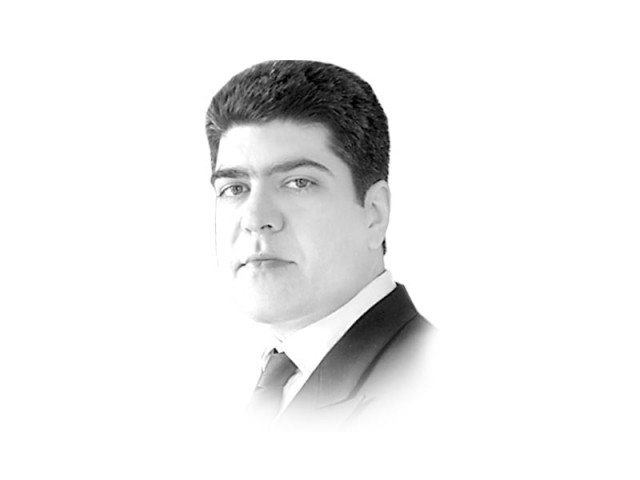Medical and hazardous waste
Pakistan is no stranger to toxic colonialism. Customs must monitor hazardous materials entering Pakistan.

Pakistan is no stranger to toxic colonialism. In countries where environmental rights are strictly enforced and penalties for pollution-high emissions are often imposed, there is a tendency to take the easy route and simply ship the waste to some far-off land; out of sight, out of mind.
In the early 1990s, it was reported that imported nuclear waste was being dumped into landfills in Balochistan. The Supreme Court of Pakistan, always at the forefront of protecting and enforcing environmental rights, took suo motu notice. Mr Justice Saleem Akhtar, a pioneer Green Judge, summoned the chief secretary of the province, asked some hard questions and, in the end, a shipload of nuclear waste bound for Balochistan’s countryside was diverted back to the European capital from where it came from. (Refer to: Human Rights Case (Environmental Pollution in Balochistan), PLD 1994 Supreme Court 102).
The international community has also taken notice of toxic colonialism. The Basel Convention on the Control of Transboundary Movements of Hazardous Wastes and their Disposal was adopted in 1989, and it came into force in 1992. The Convention seeks to prevent the transfer of hazardous waste from developed to less developed countries just as was done in the environmental pollution case in Balochistan. Pakistan acceded to the Basel Convention in 1994.
In 1997, the National Assembly passed the Pakistan Environment Protection Act (PEPA). At that time under PEPA, the federal government was empowered to make rules for the purpose of carrying out and implementing international environmental agreements and the Basel Convention was one of the agreements it regulated. However, through the Eighteenth Amendment, the provinces have been given the exclusive power to legislate on matters of the environment. Under the new Punjab Environmental Protection (Amendment) Act, 2012, no person is allowed to import hazardous waste into Punjab.
And yet, in the Lahore Dry Port there lies a shipment of hazardous medical waste, now apparently stocked and sold in the city.
Even without this dubious shipment, the conditions under which medical waste is disposed of in the country are appalling. Lahore, for instance, has no waste treatment plant and only one hospital incinerates waste. A report from this paper reveals that the likes of Jinnah Hospital, Children’s hospital, General Hospital and Ganga Ram Hospitals are all in violation of the Hospital Waste Management Rules of 2005. In 2008, 13 and in 2009, 93 of the cities hospitals were fined by the Environment Protection Agency, Punjab.
What this means is that a significant amount of hospital waste is left untreated to be disposed of in the city’s open dumping grounds or allowed to flow and pollute the Ravi River.
The PEPA places the responsibility of enforcing environmental law on the Environment Protection Agencies. After the Eighteenth Amendment, with full power to legislate on the matter, the Government of Punjab must take quick and purposeful strides to prevent the violation of law. It must take steps to ensure that Pakistan does not become a dumping ground for the waste of other countries. We already have our own pollution problems to deal with without letting the lure of import revenue wreak havoc on our health and ecosystem. The customs authorities for their part need to realise the magnitude of responsibility they have inherited and must ensure that their rules and import policy allow for the monitoring of hazardous materials entering Pakistan.
Published in The Express Tribune, May 18th, 2012.
















COMMENTS
Comments are moderated and generally will be posted if they are on-topic and not abusive.
For more information, please see our Comments FAQ